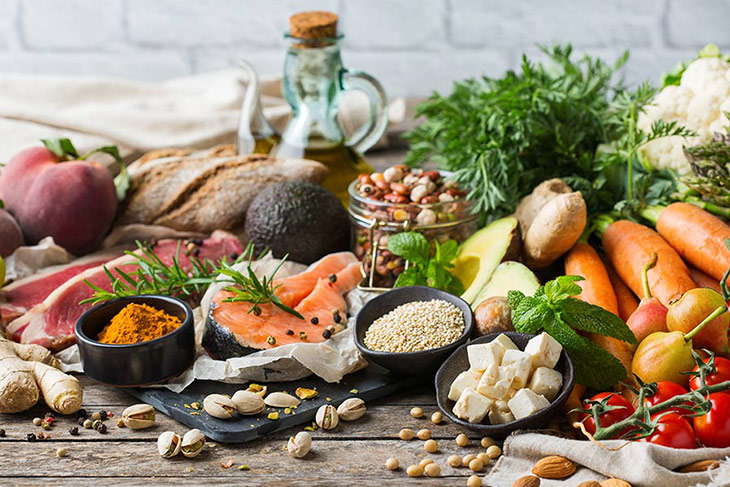The best diet for the immune system

You may have asked yourself during the Coronavirus pandemic: should I eat better to avoid getting sick?
A poor diet impacts how well your immune system works – it's as simple as that. Nutrition affects all cells in your body and the immune cells are no different.
The immune system relies on white blood cells to create antibodies that fight infection.
Undernutrition is well understood to impair immune function – malnourished people tend to get ill more often and more severely than people with an optimal nutritional status. It may be good to note that undernutrition doesn't necessarily mean underweight – it's entirely possible to be both malnourished and overweight if you don't eat the right stuff.
Being overweight can also impair your immune function as obesity causes chronic, low grade inflammation in fat cells, hindering your immune system from focusing on infections.
Learn more in our guide to diet, exercise and the immune system.
Immunity-friendly diet
Essentially, a diet that is good for the immune system is one that is rich in vitamins, minerals and antioxidants. These are compounds you find in fruits and vegetables, and the greater the variety of colours you eat, the better.
As a country, we don't eat enough fruit and vegetables. According to our 2017 Fruit, Vegetables and Diet Score report, which surveyed the eating habits of 145,000 Australians, only 24 percent of women and 15 percent of men meet guidelines for both fruit and vegetable intake.
One key finding in the report is that people who eat a variety of fruit and vegetables also have the highest consumption. And getting a wide variety of fruits and vegetables is also the best way to ensure proper nutrition for your immune system.
What you should eat
As mentioned, focusing your meals on vegetables and fruit will support your immune system in the long run. Important nutrients for the immune system are beta-carotene, vitamins C, D and E, zinc and digestible fibre.
- Beta-Carotene is an antioxidant that can help reduce inflammation and increase disease-fighting cells in your body. It's found in carrots (fun fact: carotene comes from the Latin word for carrot), sweet potatoes, and green leafy vegetables (e.g. kale, spinach and cabbage).
- Vitamins C and E are antioxidants that help destroy free radicals and also support the immune system. Vitamin C is commonly found in citrus fruits like oranges, lemons and grapefruit, but also in many vegetables like broccoli, Brussel sprouts and kale. Vitamin E is found in seeds, nuts, spinach and broccoli.
- Vitamin D may not usually be associated with the immune system but studies have shown it plays an important role in reducing the chance of respiratory tract infection. Food sources of vitamin D are generally fortified products like cereals and dairy products but your body creates its own reserves when you're exposed to sunshine.
- Zinc is a mineral that can help boost the white blood cells in your body. You'll find zinc in nuts, pumpkin and sesame seeds, beans and lentils.
- Digestible fibre supports your gut where a majority of immune cells live. Feed them well and they'll be better able to take care of you. Fibre is found in whole grain products, beans, lentils, fruits and vegetables.
It's also worth noting that staying properly hydrated throughout the day, whether it's summer or winter, will help the cells in your body work properly.
What you should avoid
Alcohol has a negative effect on your immune system, whether you are currently sick or trying to avoid getting sick. High alcohol intake causes inflammation which over time impairs the immune system. Even a single session of high alcohol intake can damage your immune system temporarily.
Added sugar and refined carbohydrates can cause a spike of inflammation in the body, so if you’re worried about your immune system, you better cut down on the added sugar intake. Your gut bacteria are also not fans of added sugar.
While fruit and many vegetables contain some natural sugars, it comes packaged with other nutrients that are good for you.
But I'm already sick – what should I eat?
If you're already unwell, hydration should be your first priority – especially if you have a fever. Then, try to include as many fresh vegetables and fruits in your diet as possible. If you're not feeling up to cooking, ready-made soups can boost your vegetable intake substantially.
It's worth noting again that if you're unwell, drinking alcohol will slow down your recovery. Alcohol is more dehydrating than caffeine (so you'll undo all those glasses of water you've already had) and take priority over other nutrients in the liver as the body perceives alcohol as a toxin that must be dealt with.
Looking for weight loss motivation, dinner inspiration or exercise ideas? Check out the CSIRO Total Wellbeing Diet blog or take a look at some of our delicious, healthy recipes.
